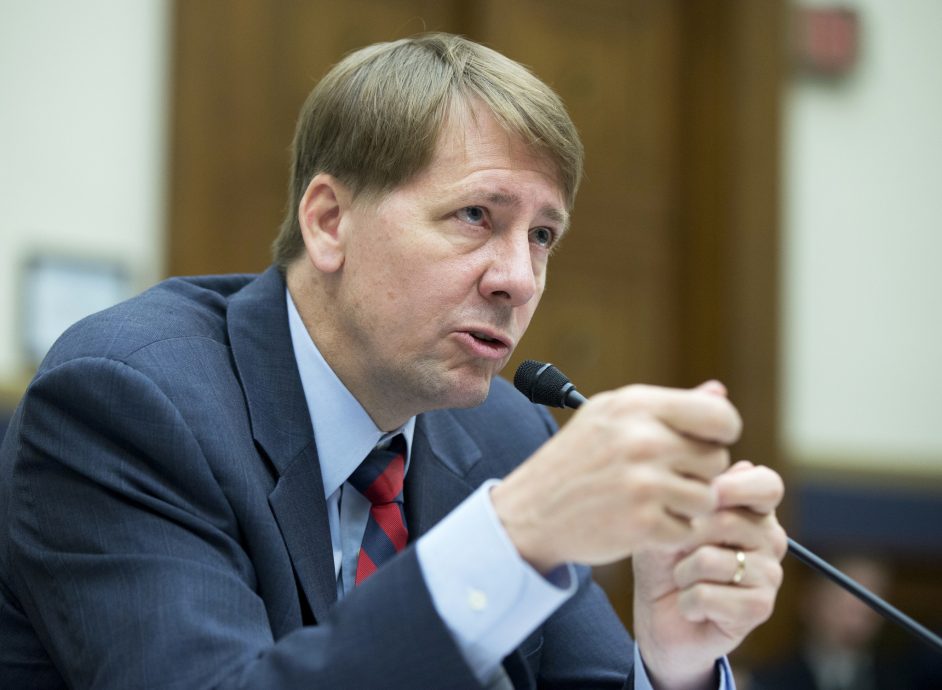James Comey's memoir A Higher Loyalty signals virtue better than most high-profile memoirs, but gives us greater insight into his vices.
Independent Agencies Must Follow the President's Interpretations of Law
President Trump must soon decide whether to say “You’re fired” to Richard Cordray, the Director of the Consumer Financial Protection Bureau (CFPB). Cordray’s policies are clearly at odds with the deregulatory impulse of the administration, whose fate depends on whether it can substantially increase prosperity beyond the sluggish growth of the Obama years.
The obstacle to getting rid of Cordray is that the statue setting up the CFPB permits the President to fire Cordray only on the basis of “inefficiency, neglect of duty, or malfeasance in office.” One possibility would be to fire him anyway on the theory that the restriction is unconstitutional. Indeed, in PHH Corp. v. CFPB, a panel of the District of Columbia Circuit held that it was unconstitutional to limit the President’s removal power over the director. It acknowledged that the Supreme Court has upheld insulating other executive agencies, like the FTC, from presidential removal. But those independent agencies were directed by multi-member commissions composed of members from different parties. The panel concluded that CFPB lacks the important check of collegial, bipartisan control, concentrating power in a single official. Thus, the Constitution required that the President have the power to remove him at will.
The difficulty with acting on the panel’s analysis is that the full District of Columbia Circuit has vacated the PHH ruling to hear the case en banc. It is true that the President could still follow the reasoning of the panel ruling and dismiss Cordray. But that action would be portrayed by the press as flouting a judicial order, even though the President is not a party to PHH v. CFPB. Moreover the President’s substantial latitude to decline to follow statutes that violate his constitutional authority is premised in part on the need to obtain judicial resolution. But here the issue would already be before a court.
The President has a better option, because he has the constitutional duty to “take Care that the Laws be faithfully executed. “If he believes that the Cordray is not always following the law (and there is some reason to believe that is the case), the President can dismiss Cordray for that reason. Indeed, the term “malfeasance” in the statute might be interpreted to encompass the situation where the President has a good faith reason to believe an independent agency head is not acting within the law. (For an excellent discussion of the statutory terms, see this post by Aditya Bamzai and John Duffy). Otherwise the statute is unconstitutional for that reason alone.
The best way to proceed would be to ask the Attorney General to determine whether Cordray is out of compliance with the law. If so, the President would then order him into compliance. If Cordray refused, he would be fired.
Another advantage of this approach is that it would strengthen the President’s power over all independent agencies. The D.C. Circuit panel gave the President the authority to fire the CFPB Director at will, but, even if upheld, this ruling depends on the peculiar structure of the CFPB, which is replicated in few other agencies. The precedent the President could set through the Take Care Clause would also apply to the more common kind of independent agencies with multi-member commissions. These agencies would enjoy some policy discretion, but the President would determine the bounds of that discretion by his own good faith legal interpretations.



